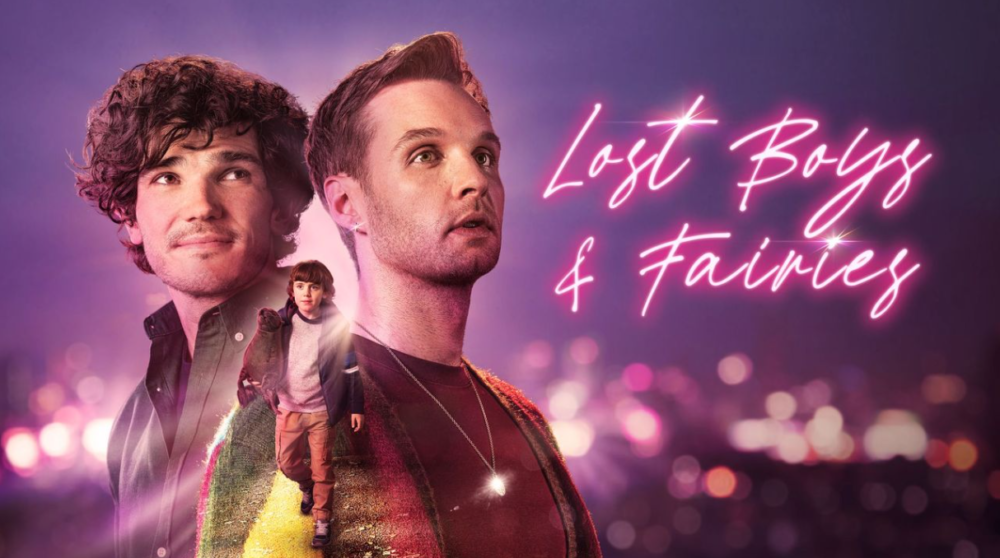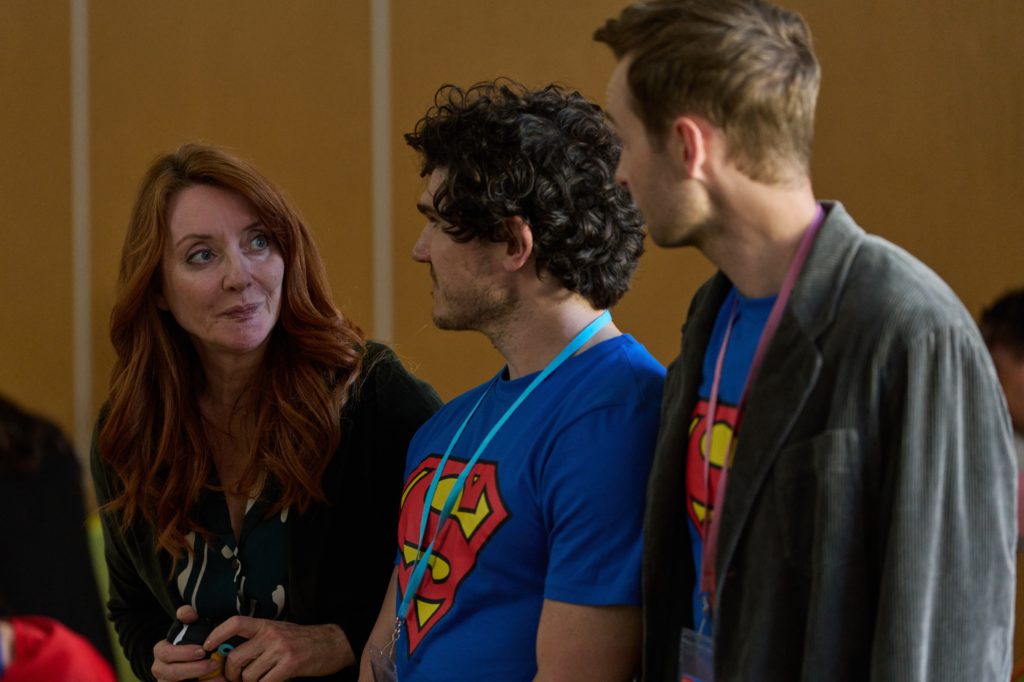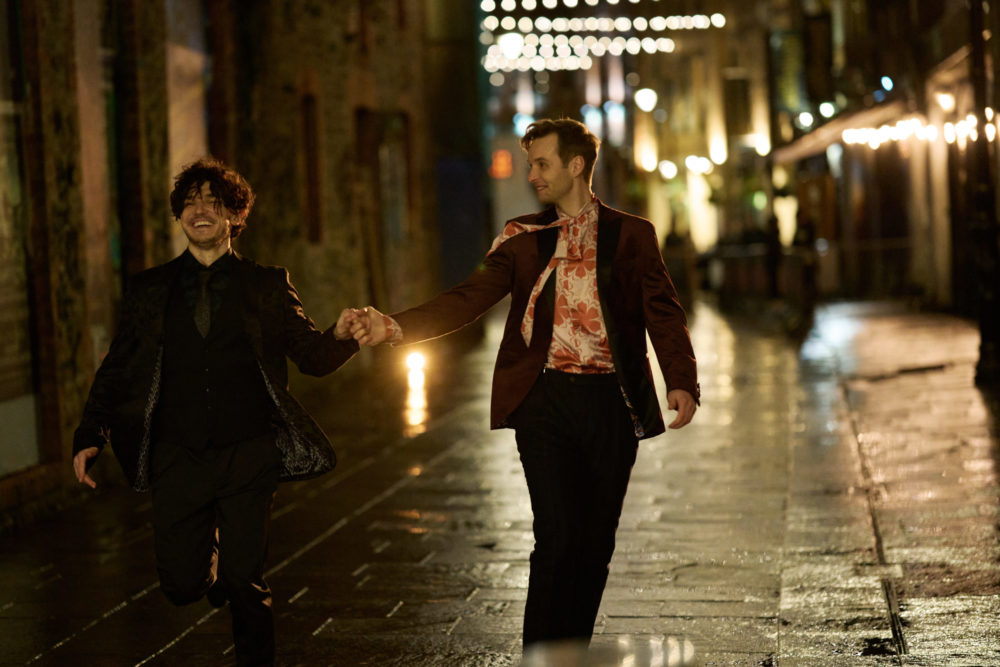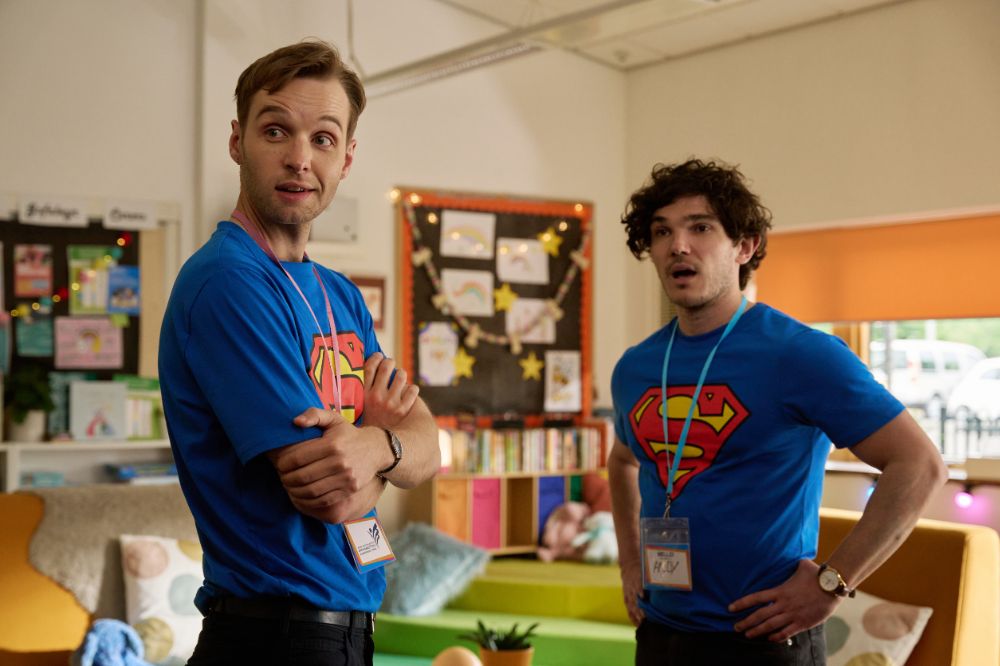TV Review: Lost Boys and Fairies by Daf James

Daniel Evans
In Lost Boys and Fairies, BBC One’s new adoption drama, writer and creator Daf James deepens his exploration of bilingualism, gayness, shame, childhood trauma, grief and drag.
His previous work, not least Llwyth (Tribe) for Theatr Genedlaethol Cymru, showed James to be a writer of wit and originality. Here, on the small screen, those qualities are matched with discipline and maturity.
Set in the Victoria Park area of Cardiff, partners Gabriel and Andy have begun a rigorous adoption process.
The former, a bilingual drag artist from the local scene (played by Siôn Daniel Young, brittle and tender), is filled with doubt, while accountant Andy (Fra Fee, warm and comfortable in his own skin) puts his foot on the gas.
Their wish for a daughter from an uncomplicated background is stymied when they strike up an unexpected connection with Jake, a 7-year-old boy with a history of family trauma.
The acting is uniformly strong.
Young and Fee have plausible chemistry, while James’ and director James Kent’s cast offers a series of terrific supporting roles, ranging from the comic (Maria Doyle Kennedy is particularly amusing as Andy’s mother who finds the contents of a “sex drawer” while tidying the house) to the empathetic (Elizabeth Berrington and Sharon D. Clarke give beautifully calibrated performances as the main couple’s social worker and Jake’s foster mother, respectively).
William Thomas’ portrayal of Gabriel’s father – repressed and lonely – is touchingly tragic.
Kent’s direction matches the formal playfulness of the writing. Dialogue is interspersed with songs from the drag club Neverland, horror-fantasy sequences with winged creatures (think Stranger Things), and flashbacks to both Jake and Gabriel’s traumatic pasts.
The camera is often journeying morbidly into eyes, reminiscent of Aronofsky’s Requiem For A Dream, during drug-binge montages or during the shocking fatal incident in the series.

For all of Lost Boys and Fairies’ entertaining narrative, its theme is profound and moving. James’ thesis is that unresolved past grief and shame are inevitable, distorting mechanisms of the present.
Gabriel is haunted by the early loss of his mother and his unloving relationship with his father, a deacon at the local chapel – both part-catalysts for his years of sexual promiscuity and extreme drug abuse.
As he faces the daunting prospect of becoming a parent himself, he realises that he must address his former trauma. Put simply, Peter Pan has to grow up.
In fact, J.M.Barrie’s story and its eponymous hero are a bedrock here.
Peter Pan is, of course, the boy who refused to grow up, whose cohort of “lost boys” – children snatched from a London park – all craved a mother.
Pan’s hurt at his own abandonment is so entrenched in denial that he cannot contemplate leaving his own island-state where he’s able to eke out a life of daring adventure.
In Daf James’ drama, the lost boys are possibly the generations of gay men who actively seek chosen families in other milieux.
Arwel Gruffydd’s Berwyn presides over the club like a gay Fagin, offering a home to young men who seek to escape the vicissitudes of a homophobic, hetero-normative world and who would rather live in the warm – if seemingly artificial – embrace of the drag scene, where they can leave their historic shame at the door.
We meet Gabriel at the very point where he must accept that the sybaritic life of a twink in his twenties has to end as adulthood beckons.

However, there is an additional, fascinating strand to Lost Boys and Fairies: that of bilingualism – an exploration new to mainstream BBC One.
Gabriel hails from a classic, rural Welsh speaking family, where life is full of traditional culture. A plethora of songs are sung: on car journeys (folk), in chapel (hymns) and at bedtime (pop).
These scenes are subtitled, and viewers are invited to contrast particular aspects of Welsh-speaking and Anglo-Welsh cultures, where even Gabriel’s name is pronounced differently.
Gabriel, in his attempt to escape his past, also eschews his native tongue.
He’s initially determined that his new son will not attend Welsh language schools or have a Welsh name – a strategy that speaks volumes about his own sense of cultural oppression.
It’s a touching point that Andy, who hails from another Celtic culture, is keener to pass on his adopted country’s linguistic and cultural traditions to his son.
For Gabriel, his 80s childhood – made vivid through Margaret Thatcher’s public objection to gay inalienable rights, John Hurt’s demonic voiceover on government TV adverts warning against AIDS – is flooded with grief and shame, to which his native language and culture are indivisibly linked.

One of the most moving features of Lost Boys and Fairies is Gabriel’s painful journey back to the past, as he begins to untangle the psychological knots tied tightly in the intersections of shame, and cultural and sexual identity.
If, as Wordsworth put it, the child is the father of the man, then in Gabriel’s case, his pathway towards being a new father is also his salvation.
In leaving behind childhood things, he is released to hold onto the precious parts of his early years, including his language and the love of his mother, and move on with courage and self-knowledge.
Daf James has written a searingly honest, witty and original drama, catapulting him to a new phase of his career, where we’re all excited to see what comes next.
Lost Boys and Fairies is available to watch here.
Support our Nation today
For the price of a cup of coffee a month you can help us create an independent, not-for-profit, national news service for the people of Wales, by the people of Wales.








This should have,at least,six episodes.There were no real difficulties i Gabe and Jake’s relationship.These could have been examined in six episodes perhaps.
It was staggeringley utterly fabulous. I know the main actors have acted for years but this has got to bring them into world class. There was not one flaw in this breathtaking drama. I cried the whole way through and laughed and chuckled in parts and still now wish for an ending with Andy in it. It’s simply the best thing I’ve seen in years and I can’t stop thinking about it. And the music just fitted like a glove and so so powerful. Honestly I am telling all who will listen to watch this sublime drama. Someone on here… Read more »